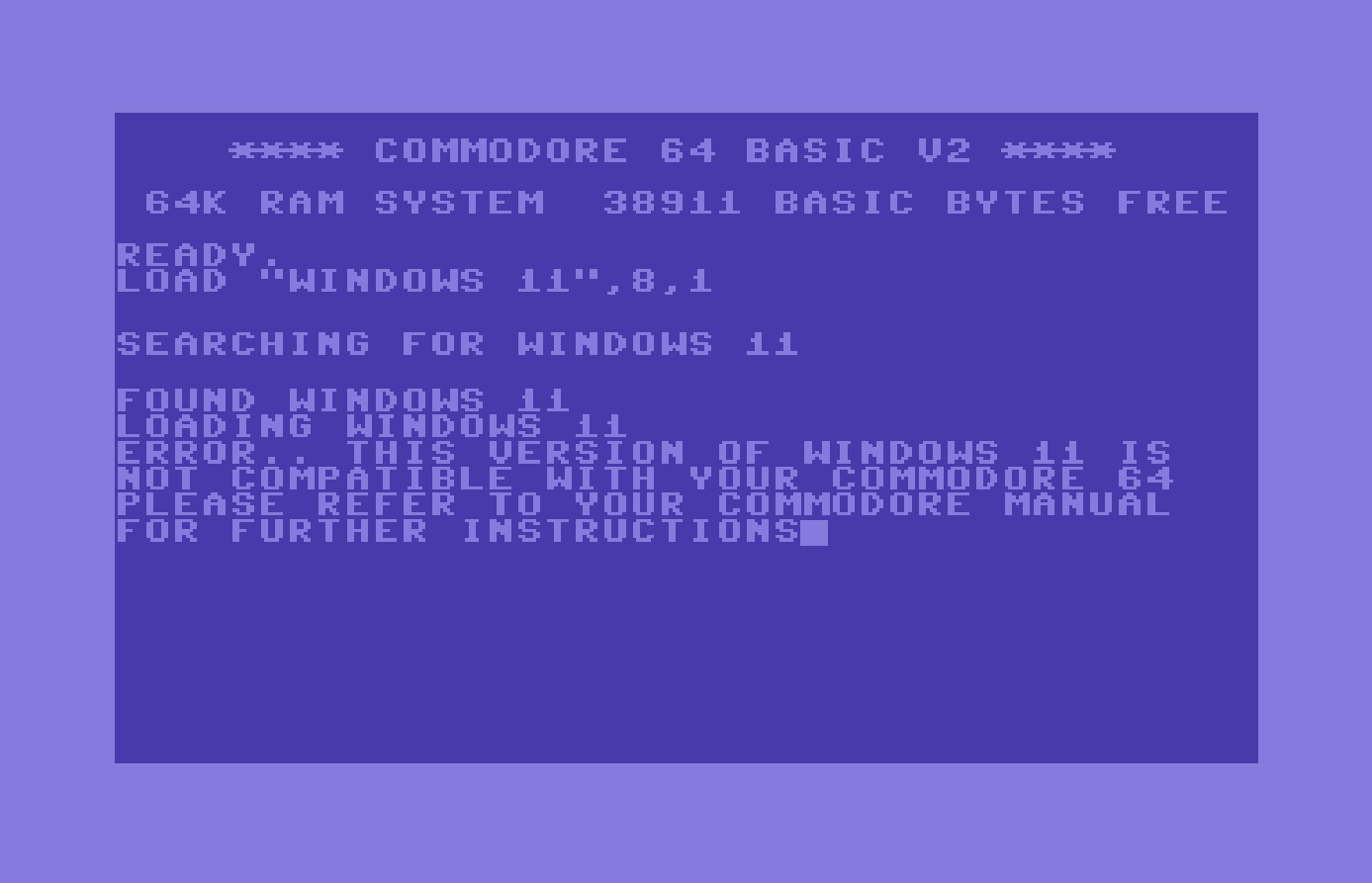JSHamlet234
Gawd
- Joined
- Apr 9, 2021
- Messages
- 943
I'm not sure if these are real requirements, or just a segment that they specifically want to beta test at this juncture. Maybe they picked CPUs that are in computers that could likely still be sold as "new" in order to get this thing ready for OEMs.
The Microsoft I know will eventually try to cram this bloated spyware down everyone's throat whether they want it or not.
The Microsoft I know will eventually try to cram this bloated spyware down everyone's throat whether they want it or not.
![[H]ard|Forum](/styles/hardforum/xenforo/logo_dark.png)

